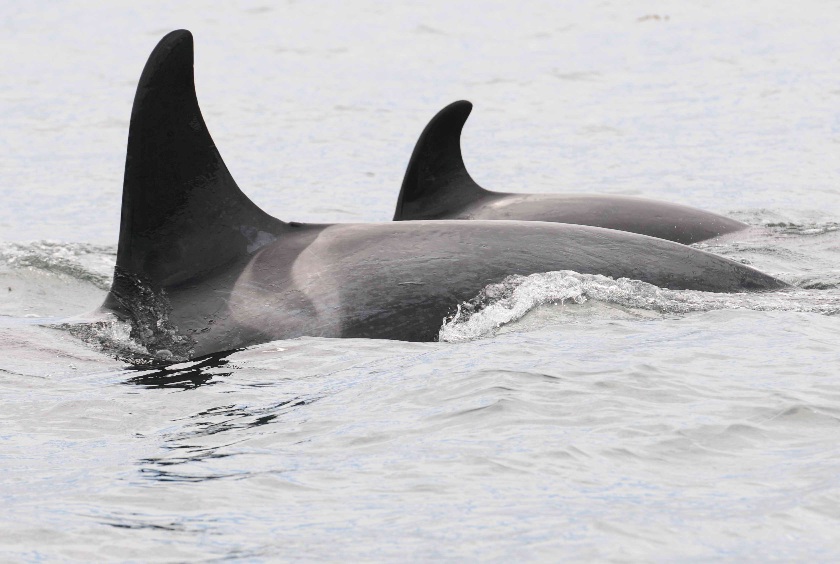VANCOUVER – You might remember the story of Springer the killer whale.

She made headlines twelve years ago after she became the first killer whale to have been captured and then successfully re-integrated into her pod.
Archive: Springer the orphaned orca whale was finally released into Johnstone Straight where experts hope she will unite with a pod. **Original air date: July 2002**
Officially known as ‘A73’, Springer is a female member of B.C.’s A4 pod of northern resident killer whales.
In June of 2002, after several months of monitoring her deteriorating condition, Springer was transported from Puget Sound and placed into a net pen at a research station, where she was rehabilitated.
When she was strong enough, Springer was brought back home into Canadian waters.

Get daily National news
She was released when her pod made contact and although not immediately, Springer was eventually re-adopted by her family.
Each year she makes the trip back to B.C. waters and last year was spotted with a calf near Bella Bella.
WATCH: Tue, July 16, 2013: Springer the orphaned orca gained national attention 11-years ago when she was reunited with her pod off the BC coast. And as Robin Gill reports, she’s back in the headlines again after scientists discover she is now a mother.
That sighting was cause for celebration, but this week’s sighting is even more significant because it means Springer’s calf has survived the most challenging period of any whale’s life: the first year.
Neonate mortality, from birth to six months of age, is high, reported at approximately 43 per cent for resident killer whales. If the calf survives past its second birthday, it will get an “adoption” name as well as its scientific identification.
“They appear to be healthy and robust… normal in every way. Great stuff,” wrote Lance Barrett-‐Lennard, head of the Marine Mammal Research Program at the Vancouver Aquarium. Northern resident killer whales, including Springer, are now listed for protection in Canada.
Archive: Springer the young orphaned killer whale turned up in a busy boating area of Puget Sound in January 2002 in poor health. Linda Aylesworth has her story and the plan to return her to the wild. **Original air date: July 2002**
Both northern and southern resident killer whales are the subject of a recovery strategy developed in 2011 under the federal government’s Species At Risk Act.
“This sighting is great news for everyone interested in the welfare of killer whales off the west coast of North America — and will be particularly gratifying to those who were involved in the many aspects of Springer’s identification, assessment, rescue, rehabilitation, transportation and release 12 years ago,” said Barrett-‐Lennard.








Comments